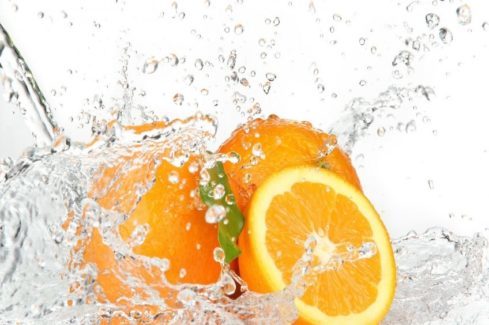We all know water is important, however, the importance of water in our diets and staying hydrated is significantly underestimated by many of us.
Water also referred to as the chemical compound H2O is a substance which is transparent, tasteless, odourless and occurs in a liquid state at normal pressure and ambient temperatures. It comprises one oxygen and two hydrogen atoms, hence its name ‘H2O’ and is present in the earth’s streams, lakes, and oceans, and the fluids of most living organisms (this includes us).

10 fun facts about water! Did you know;
There’s still the same amount of water now on earth as when the earth was first formed.
Water covers approximately 71% of the earth’s surface.
80% of all illness in the developing world is water-related.
The water from your faucet could contain molecules that dinosaurs drank.
Hot water weighs less than cold water.
Water regulates the earth’s temperature.
Water makes up approximately 66% of the human body.
1 gallon of wine requires 1,008 gallons of water.
Human bones are approximately made up of 31% water.
Pure water (solely hydrogen and oxygen atoms) has a neutral pH of 7.
Interesting right? So water has a lot more uses than we think and is essentially one of the main reasons why human life still exists today.
Role of water in our diets

The need for water in our diet stems far greater than just clenching our thirst. Water is required for maintaining multiple functions of the human body.
Body temperature regulation
Water helps regulate body temperature. Water has a large heat capacity which helps limit changes in body temperature in a warm or a cold environment. It enables the body to release heat when the ambient temperature is higher than body temperature: we begin to sweat, and the evaporation of water from the skin surface cools the body very efficiently.
Healthy skin and joints
Water helps flush out waste products and toxins, cleansing the body. Adequate hydration allows for our bodily tissue to stay moisturised, this includes the blood, brain and bones. Water will therefore replenish skin cells, increasing the elasticity of the skin, and therefore making it appear healthier.
Cell metabolism
At the cellular level water acts as a messenger carrying nutrients and oxygen to cells, providing adequate hydrations and flushing waste and toxins out of our bodies. Water also contributes largely to the metabolism and the biochemical breakdown of food protein, lipids and carbohydrates via hydrolysis reactions.
Dehydrations

Since we have covered the important functions of water, it might be beneficial to cover how we should detect if we are drinking enough and what exactly is ‘enough’. Firstly, everyone’s water intake isn’t the same, and there is no one size fits all for how much water we should be consuming, despite the fact that there is such a thing as drinking too much which is known as water intoxication. As a measure, the Eat Well guide tells us to drink 6-8 glasses of water a day however The European Food Safety Authority (EFSA) recommends an intake of 2.5 litres of water for men and 2.0 litres of water for women per day, via food and drink consumption. These numbers however should only be used as a guide. Water requirements can be significantly influenced by many factors such as exercise and climate conditions. It is important to know the signs of dehydration as this could determine if you may or may not be drinking enough water.
Common signs of dehydration:
Yellow or unclear urine.
Less frequent urination.
Increased thirst.
Dry mouth or lips.
Dry skin.
Headache.
Dizziness.
Tiredness or sleepiness.


